The 2022 China Robot Contest hosted by the China Automation Society started the finals online on November 25, 2022. This contest designed a number of categories that addressed the hot issues in robot development, attracting more than 4,500 applicants in 843 teams from 220 universities including Qinghua University, Shanghai Jiao Tong University, Tongji University, Zhejiang University, National University of Defense Technology, Beijing Institute of Technology and other well-known universities in China. Due to the pandemic prevention and control requirements, the finals were finally conducted live online after being postponed and rearranged. Teachers and students of Tongji University worked hard to overcome difficulties in preparation for the contest. All three participating teams advanced to the finals, and finally won one first prize (top eight in China) and two second prizes.
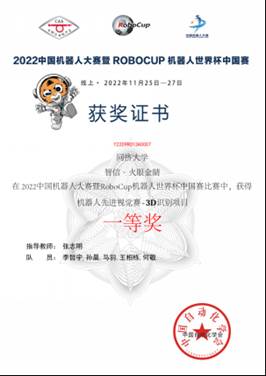
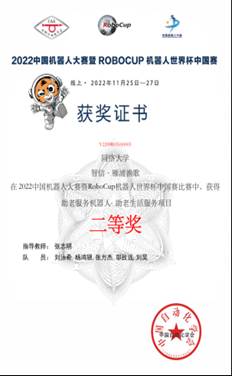
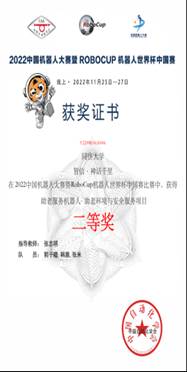
Award certificates
The advanced 3D visual recognition contest had two rounds of dynamic and comprehensive recognition. A rotating target stage was set for dynamic recognition, and a rotating target stage and two stationary target stages were set for comprehensive recognition. The items on the targeted table of each round were randomly selected by the organizing committee from more than 40 kinds of items. The participating teams were expected to accurately identify and count the items on each targeted table under strong interference conditions such as illumination, occlusion, interference objects, and stickers by using 3D vision sensors and AI models. Tongji's Zhixin Piercing Eye Team consisted of five students: LI Zheyu (Automation), SUN Chen (Mechanical Engineering/Intelligent Manufacturing Engineering), MA Yu (Automation), WANG Xiangdong (Automation), and HE Jing (Control Science and Engineering). Under the guidance of Mr. ZHANG Zhiming from the College of Electronic and Information Engineering, they were prepared to challenge themselves under limited conditions. They learned from the last contest and carried out data expansion and screening, improved the accuracy and robustness of algorithm recognition, model deployment, and equipment debugging, and finally won the first prize.

Zhixin Piercing Eye Team (from left to right: LI Zheyu, SUN Chen, MA Yu, WANG Xiangdong, HE Jing)
Helping the Elderly contest was composed of two different subcategories: Life Service and Environment and Safety Service. They examined robots in human-computer interaction, mechanical design, SLAM and autonomous navigation, autonomous operation of mechanical arms, voice positioning function, and environmental condition monitoring. The two teams under the guidance of Mr. ZHANG Zhiming successfully completed the finals, and both won second prize. Among them, Zhixin Yanpu Yuge Team participated in the Life Service (fifth place). The team members were LIU Yongxi (communication engineering), YANG Hongyin (electronic information engineering), ZHANG Fangjie (automation), YAN Zhiyuan (artificial intelligence), LIU Hao (control science and engineering). Zhixin Shinhwa Qianli Team participated in the Environmental and Safety Service (sixth place), and its members were GUO Zizhan (automation), HAN Yi (automation), and ZHANG Mi (electrical engineering).

Zhixin Yanpu Yuge Team (from left to right: LIU Yongxi, YANG Hongyin, ZHANG Fangjie, WU Zhiyuan, LIU Hao)
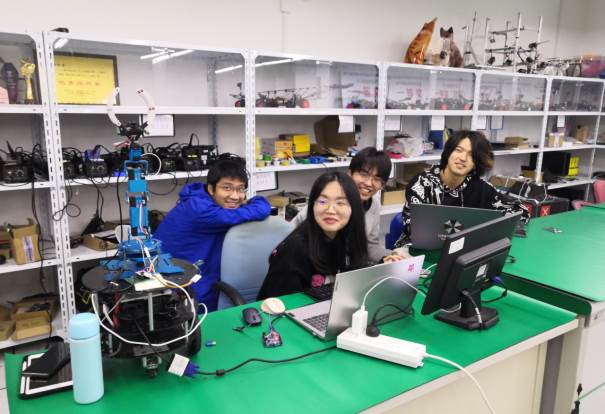
The students working in the laboratory
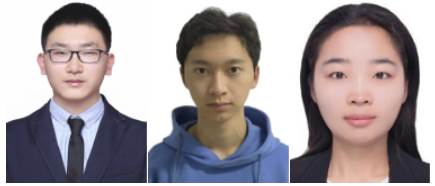
Zhixin Shinhwa Qianli Team (from left to right: Guo Zizhan, Han Yi, Zhang Mi)
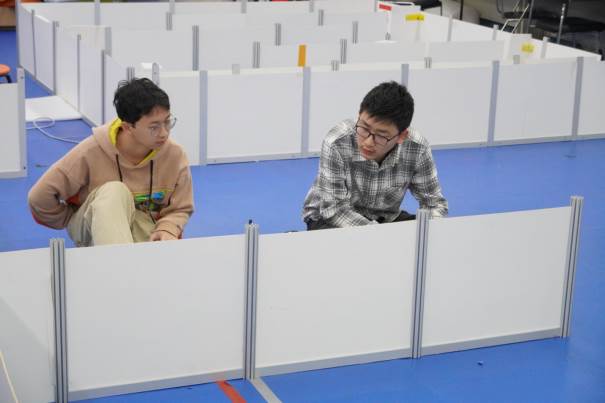
Students are doing tests
Since it was held for the first time in 1999, China Robot Contest has become one of the most influential robotics competitions in China with the highest technical comprehensiveness. The contest has been listed in the National College Discipline Contest Rankings and Robot Contest Rankings issued by China Higher Education Association. Robots involve many interdisciplinary subjects such as control, computer, machinery, and electronics. Competition practice can promote the development of robotics, automation, and artificial intelligence. Participating students can enhance their theoretical and practical operation abilities, and cultivate their innovative ability and teamwork spirit from the process.
Under the guidance of the university's education policy, the Smart Car Competition Laboratory and the Artificial Intelligence + Robot Competition Laboratory are open to undergraduates from different majors. They conducted innovative education research and participated in subject competitions and achieved good results in high-level college students' competitions and innovative practice projects.